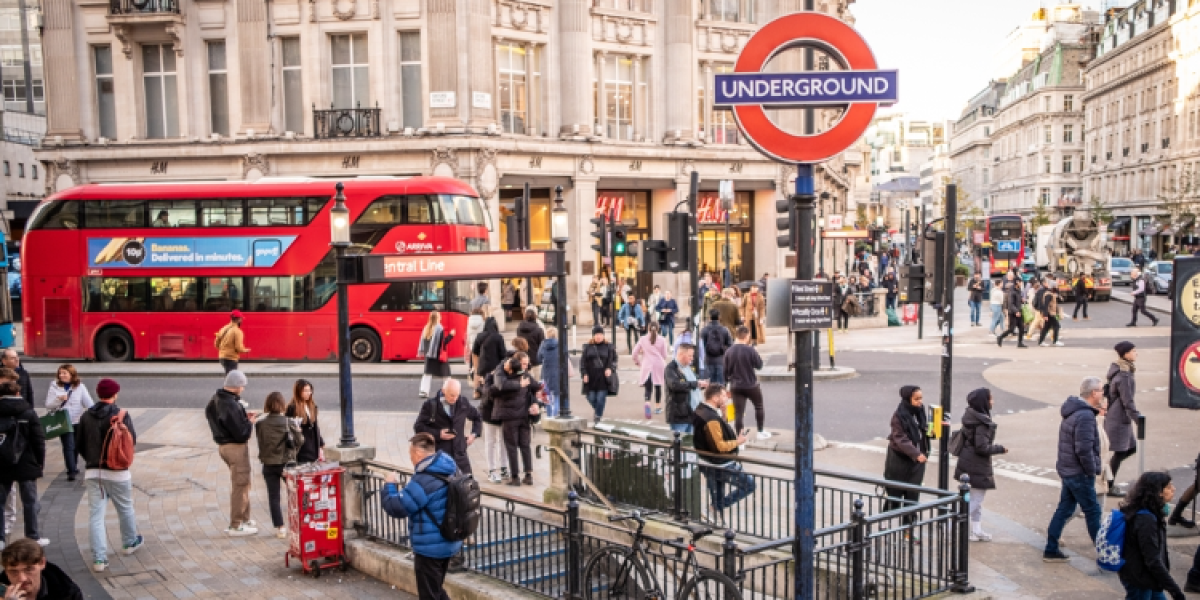
One of the government's goals was to curb the rising trend of immigration by tightening the rules for prospective expats. April saw the introduction of new measures aimed at further filtering applications from foreign workers. What does this mean for those considering moving to the UK? Here's an in-depth look.
Notable drop in immigration figures
According to Home Secretary James Cleverly, this is the largest plan (to reduce legal immigration) ever implemented in the country's history, and it is working. He recently presented the latest figures from the National Statistics Office, confirming a remarkable decline in immigration figures. The number of skilled workers (notably in healthcare) and international students dropped from 235,400 in January-April 2023 to 175,500 in the same period this year (25%)—the most significant since the COVID-19 pandemic.
However, the government warned that net migration figures would remain high at the end of 2023, as the new restrictive measures were only implemented this year. A significant drop in net migration is expected by the end of 2024.
In November 2023, National Statistics Office data reported a net migration of 745,000 (instead of the previously estimated 606,000) between December 2021 and December 2022—a setback for conservatives prioritizing immigration reduction. Following this, further restrictive measures were confirmed, including increased health surcharges and minimum salary thresholds for immigration, stricter family reunification rules, reduced support for expatriate doctors, and limitations on the shortage occupation list. Migration numbers fell significantly between June 2022 and June 2023 (net migration of 682,000 people) and continue to decline in 2024.
Fewer student visa applications
To reduce the number of international students, the government targeted their family members. By significantly tightening dependent visa rules (family reunification is now prohibited except for eligible PhD students), the number of applications dropped by 79% between the first four months of 2023 and the same period this year. Dependent visa applications went from 39,900 in early 2023 to 8,300 in January 2024. Suspecting student visa applications as a cover for working in the UK, the government also prohibited switching visas during studies. Between January and April 2024, there were 30,000 fewer student visa applications than in the same period in 2023. Sponsored student visas decreased by 12%. This visa allows students to be sponsored by educational professionals (independent universities, schools, etc.).
Decline in dependent visa applications from healthcare professionals
Official data shows a 58% drop in visa applications for the families of "Health and Care" visa holders. This decline is a direct result of the recent ban on family reunification for foreign healthcare professionals. The number of visas issued to healthcare and care professionals fell from 50,900 (January-April 2023) to 12,400 in the same period this year, a 76% decrease.
Launched in 2020, the visa facilitated the entry of healthcare professionals into the UK. The NHS, already struggling before COVID-19, welcomed these professionals warmly, as they were essential to keep the NHS afloat. However, starting in 2023, the Prime Minister announced an unprecedented reform to save the NHS, targeting the number of foreign professionals. The government tackled dependent visas, deeming some applications "disproportionate" and "unsustainable." Therefore, figures dropped from 15,100 in April 2023 to 6,400 in April 2024.
Slight increase in the number of skilled foreign workers (excluding Healthcare)
While the number of skilled workers in healthcare declined, other sectors saw an increase. Figures rose from 20,700 in January-April 2023 to 50,900 in the same period in 2024. Dependent visas for these skilled workers increased from 16,200 to 26,300. However, observers caution that this increase is misleading. Employers hurried to recruit foreign workers before the new monthly salary threshold took effect. This is one of the last measures by the UK government to reduce the number of skilled foreign workers. Since April, the minimum monthly salary required for a work visa has increased to £38,700 from £26,200 before the reform.
Extension of the 'Pre-settled' resident status for EU residents
On the other hand, there's good news for European nationals (EU, EEA, and Switzerland) in the UK. The government has introduced several measures to improve residency conditions and streamline procedures. In September 2023, the Home Office automatically extended the pre-settled status of residents by two years, ensuring no one lost their status. The new measure further extends the status from two to five years.
Other improvements include the removal of the expiration date for pre-settled resident status and the end of additional checks. Employers and landlords will no longer be required to verify the compliance of rights for nationals retaining their jobs or rental agreements. According to 2023 government figures, 5.7 million people secured their rights in the UK through the EU Settlement Scheme. 3.7 million of them held "settled resident" status. Two million had "pre-settled resident" status.
What to expect when moving to the UK
James Cleverly supports a reform designed for Britons. The Home Secretary reminds us that "Britons deserve an immigration system that prioritizes their interests." Healthcare professionals counter that without foreign caregivers, the NHS would have collapsed long before COVID-19. They deem the government's measure counterproductive and punitive, a "double penalty" for essential foreign caregivers.
Businesses, for their part, warn of the risk of having more foreign graduates but no employment contracts. The government's increased salary thresholds will penalize many employers. Companies already report job contract cancellations due to the inability to pay foreign graduates according to the new legal standards.
Despite protests, the determined government is pushing to reduce legal immigration figures. It is prepared to go "further" to achieve its goals. It anticipates a net immigration reduction of 150,000 to 200,000 thanks to its restrictive measures, aligning with Johnson's 2019 forecast of reducing immigrant numbers by around 226,000 per year.



















